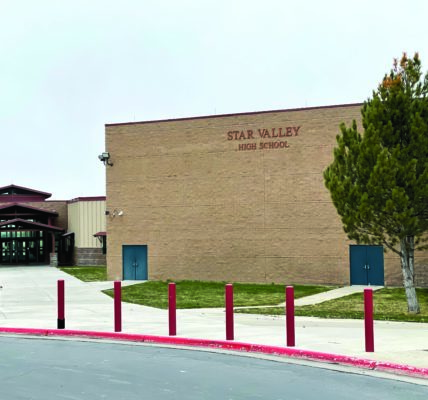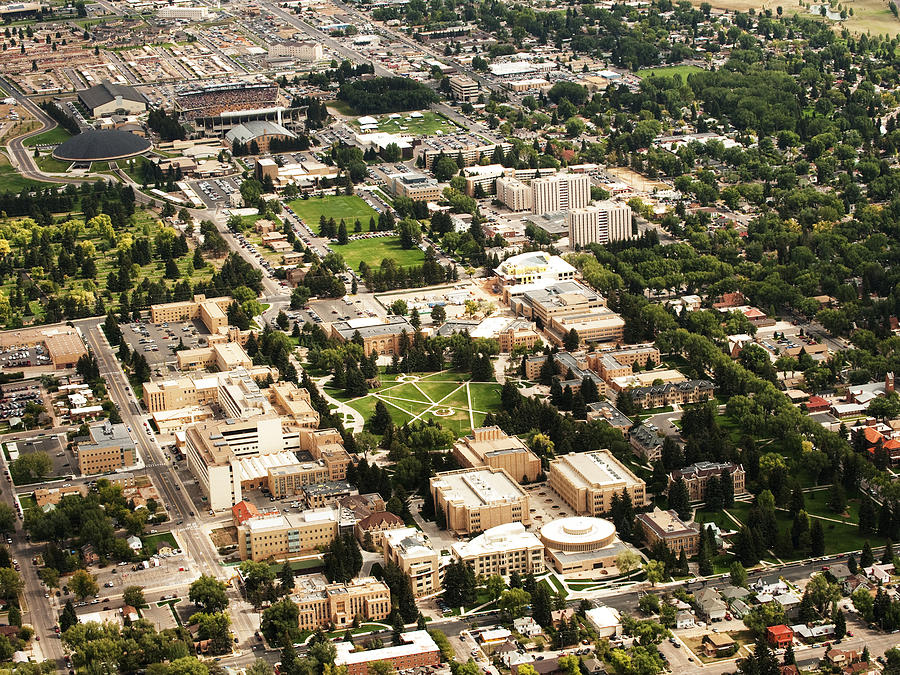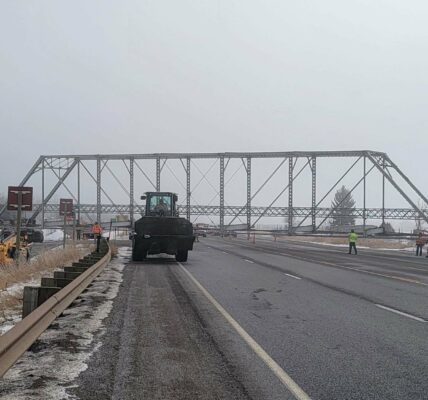
By Hannah Shields
Wyoming Tribune Eagle
Via- Wyoming News Exchange
CHEYENNE — States like Wyoming are looking at ways to put restrictions on or regulate foreign land ownership within proximity of critical infrastructure.
In the 2024 budget session, Sen. Tara Nethercott, R-Cheyenne, introduced a bill that allows the state to investigate foreign-owned land transactions. The bill, which was signed into law by Gov. Mark Gordon, provides a definition for “critical infrastructure,” “critical infrastructure zone” and “designated country or persons.”
The legislation allows Gordon and the Wyoming Office of Homeland Security (HLS) to designate these zones, and requires county clerks to report land transactions that occur in or within a five-mile radius of the critical infrastructure zone.
It also gives authority to the director of HLS and the Division of Criminal Investigation to investigate, upon reasonable suspicion, any of these reported land transactions that “involves a designated country or person, or if the transaction poses a threat to national or state security or that of the critical infrastructure,” according to a memo provided by the Legislative Service Office (LSO).
On Thursday, members of the Legislature’s Joint Appropriations Committee sought advice from experts on where further state regulation of foreign land ownership is appropriate in Wyoming. LSO staff attorney Tamara Rivale said she was unsure what would happen if a security threat was discovered under Nethercott’s bill.
This issue is the fifth interim topic for the JAC. Rivale advised lawmakers in their process of writing new legislation to keep in mind how it will correlate with Nethercott’s bill, Senate File 77, which becomes law July 1.
The U.S. president already has some oversight of foreign policy through a commission called CFIUS, or Committee on Foreign Investment in the United States, Rivale said. This commission focuses more on transactions with a foreign entity, she said. This includes mergers, acquisitions and business deals that involve a foreign entity becoming a business owner or having a significant backing of assets in a business.
The only real estate component under CFIUS is when a foreign entity acquires land within a certain distance of a military installation, she said. There’s “not complete overlap” between what falls under CFIUS’ purview and SF 77, Rivale said.
President Joe Biden recently identified the acquisition of property by MineOne, a British Virgin Islands company owned by Chinese nationals, as a potential threat to national security, through a CFIUS recommendation. The company is a specialized cryptocurrency mining operation that acquired real estate within a mile of F.E. Warren Air Force Base in June 2022.
CFIUS said the transaction was not initially reported to the commission, and it found out about it through a public tip. Following the president’s statement, the Cheyenne company was ordered to sell or transfer the property within 120 days, and remove all items, structures or other physical objects or installations from the property within 90 days.
The president’s order of divestiture — an order to fully or partially dispose of the business — in May is what made this issue “timely,” Rivale said. Committee co-Chair Rep. Bob Nicholas, R-Cheyenne, asked how the role of the state fits into this.
“If the feds are doing it, why do we need to do it?” Nicholas said. “Because if the feds act, then that takes our liability or risk away, which has some benefits to it.”
“That’s one of the timely issues,” Rivale said, “is whether the state even can act in this area or whether it is preempted by CFIUS.”
She said it was clear under federal law that CFIUS had purview over foreign land ownership near military installations. What is less clear “is who would have authority over critical infrastructure,” she said, such as power plants and dams.
Rep. Lloyd Larsen, R-Lander, asked if the failure to report the foreign land transaction in Cheyenne was something that could be handled at the state level.
“If the feds don’t know that they’re there, and there’s a transaction taking place, is it a reasonable or an appropriate thing to have something in place as a state?” Larsen said.
Rivale answered this could be an argument for the state to enact legislation that would assist the federal government in strengthening national security. States are better equipped to know what’s happening at the local level, she said.
Constitutional consequences
A provision in the Wyoming Constitution, Article 1, Section 29, “prohibits discrimination against resident aliens with enjoyment of property rights,” Rivale said. Drafting a bill that prohibits all foreign citizens from owning land would violate that constitutional provision.
She added it hasn’t been interpreted by Wyoming courts if foreign companies would qualify under this provision. Other areas to consider when drafting a bill, Rivale said, include how it applies to agriculture and military bases, whether or how it should be applied to all non-citizens and whether it should apply to businesses.
Other areas to include are a consideration of which countries are listed under foreign adversary and whether foreign- owned businesses that have already existed for a long period of time are affected.
Gordon’s chief of staff, Drew Perkins, said when it comes to critical infrastructure, “we’re all talking about the same thing,” just different subsets of the definition. He also cautioned lawmakers against creating “broad brush” policy.
The 11th Circuit U.S. Court of Appeals is currently hearing a Florida case regarding a state law that bans foreign ownership of property for certain nationalities, including Chinese immigrants. The Florida law under question bans immigrants of certain nations from buying homes in several areas in the state.
“States have to be very, very careful when they talk about why this is important for national security,” Perkins said.
He praised the bill brought by Nethercott, which he said provided the basic framework to identify real estate transactions within a certain proximity of critical infrastructure.
“The idea was simply that the state would act as the eyes and ears of the feds, and then relay that information,” Perkins said.
He advised lawmakers to consider the practicality of a five-mile radius around F.E. Warren Air Force Base, since this encompassed large portions of the city of Cheyenne.
“You have to be incredibly careful about that proximity, because it just becomes impractical,” Perkins said. “You could easily exclude anybody inside Cheyenne.”
Mining, food industry concerns
Jody Levin, who spoke on behalf of the Wyoming Mining Association and trona industry, said foreign land ownership regulations were a big concern for the mining industry. Levin said three of the four trona mines in Wyoming are owned by foreign companies, as well as both of the expansion projects.
There is foreign ownership in uranium and other rare earths, as well, she said. The concerns are specifically over broad definitions of “agriculture” and “critical infrastructure.” Trona operations are located in Flaming Gorge, near Interstate 80, substations and major electrical lines — all of which could be considered critical infrastructure — as well as chemical processing plants.
These operations supply over 90% of the U.S. soda ash market, she said.
“So, we find ourselves in a massive quandary,” Levin said. “There is not a great way of trying to figure out this issue.”
Some of these trona operations had been there for decades, she added, which hardly seemed to be a national security threat.
“These are some of the best, high-paying jobs in the state of Wyoming,” Levin said. “They are great taxpayers. They’re wonderful corporate citizens.”
Wyoming Farm Bureau Federation government relations director Brett Moline said his organization shared the same concerns.
“We don’t want to keep our friends out that are doing a good job,” Moline said. “It’s more of the adversarial nations coming in and controlling our food supply and other aspects of our economy that we’re most worried about.”




